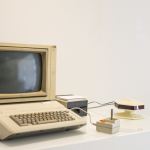When people think of bare essentials for day-to-day living, food, clothing and shelter are often the first things that come to mind. Access to a phone is also a part of that necessity, at least according to the American federal government.
The government believes it’s so vital that families that fall below a specific income threshold are now eligible for a free mobile phone along with free allotted monthly minutes. Those eligible for food stamps, Medicaid, school lunch programs and other forms of federal assistance likely also qualify for a free cellphone all paid for by the government. This spurs a question with strong opinions from both ends of the spectrum. Is a mobile phone really a necessity in this modern day and age, or is it a luxury akin to cable television and video game consoles?

Are Smartphones Really A Necessity?
Some members of the legislator have sought to introduce measures that will eradicate government-provided phones, believing that it is a federal waste. For some, however, phones are so integrated into modern society that it is almost considered a necessity. Those without one may not be able to contact their physician or hear back from an employer with a prospective job offer. Most businesses these days assume recruits have a cell phone number where they can be reached. No phone also means not being able to reach your loved ones in an emergency. Also, a free phone also means one less bill that has to be paid, so the money saved can be used for other essentials like daycare or paying the rent on time.
Proponents of government-issued phones also point out that contrary to popular belief, the program is not paid for by tax dollars. Participating mobile carriers contribute a portion of their revenue to the federal Universal Service Fund. Also, most recipients still accrue a small fee on their bills if they go over their monthly limit, so they will have a small out-of-pocket expense.
The Counter Argument for Government-Provided Cellphones
Keep in mind that despite the alarming poverty rate, America is still one of the wealthiest nations where even the poorest households have a refrigerator, microwave, television and at least one car. Compare this to impoverished families in third world countries that don’t even have access to running and clean water. In many cases, poor families in America live more comfortably than the wealthiest families in underdeveloped nations.
According to opponents, handing out free cellphones is just another prime example of social welfare and entitlement mentality. It also promotes dependency on government handouts instead of encouraging Americans to become self-sufficient. The American Heritage Foundation is one of the most vocal critics of government-issued phones and reports that recipients who benefit from the program are loosely monitored. What this means is that if an individual’s income increases and is no longer eligible for continued enrollment, there is no oversight to ensure that the recipient stops receiving the free monthly cell service. Most programs, however, do require enrollees to submit proof of income every 12 months.
Should The Government Continue to Hand Out Free Phones?
There is no question that a smartphone is a valuable piece of accessory that allows people to easily get a hold of loved ones and can even be a lifesaver in an emergency scenario. Even more parents are giving their pre-adolescent children a phone. In most cases, the phone is not given to spoil them but to ensure that their children are reachable at all times. Most parents would likely consider the close monitoring and safety of their children a necessity in this respect.
The question then is whether a smartphone should be placed in the same category as food stamps and housing assistance, both of which are clearly necessities for basic survival. There is little debate, however, that as society becomes more technologically advanced, that its citizens have to adapt. A century ago, a car was considered a luxury reserved for the wealthy; today, most consider it an essential possession. Perhaps the same can be said of mobile devices. Communication is such an integral part of everyday life, and having a cellphone enables individuals to communicate with family, friends, employers and clients in a way that is considered the standard norm in this era.











Leave a Reply